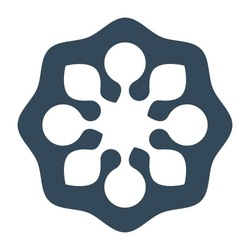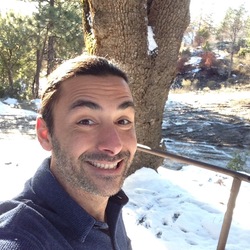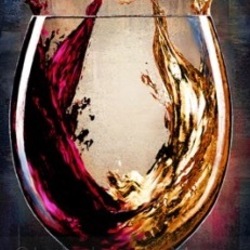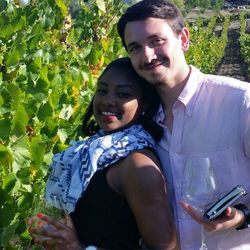Château Larcis Ducasse
Saint-Émilion Red Bordeaux Blend
 St. Émilion, Libournais, Bordeaux, France
St. Émilion, Libournais, Bordeaux, France
The 2005 Larcis Ducasse is one of the great surprises of this retrospective of nearly two hundred 2005s. A wine of shocking intensity, power and structure, the 2005 is still an infant. Inky dark fruit, gravel, lavender, leather and spice all hit the palate. In the glass, the 2005 is marvelously deep, rich and dark. I am not sure if the tannins will ever fully soften, but so what? The 2005 Larcis Ducasse is an epic wine that shows just how magical this estate is. Superb. (Antonio Galloni, Vinous, April 2021)
The 2005 Larcis Ducasse is one of the great surprises of this retrospective of nearly two hundred 2005s. A wine of shocking intensity, power and structure, the 2005 is still an infant. Inky dark fruit, gravel, lavender, leather and spice all hit the palate. In the glass, the 2005 is marvelously deep, rich and dark. I am not sure if the tannins will ever fully soften, but so what? The 2005 Larcis Ducasse is an epic wine that shows just how magical this estate is. Superb. (Antonio Galloni, Vinous, April 2021)

Literally the forgotten vintage: Shows red cherry, brambly raspberry and coffee. You g still. Will be better in 10 years. Today so so
Literally the forgotten vintage: Shows red cherry, brambly raspberry and coffee. You g still. Will be better in 10 years. Today so so
Mar 14th, 2021
The second Bordeaux to pair with our Allen Brothers steak trio. Thought we’d do a Right Bank & Left Bank. For me, having a Right Bank after a Left Bank is the better order to have them. Merlot based Bordeaux is always a little softer. Drinks better after you’ve finished your steak. Not as food dependent.
2007 is not known as a remarkable Bordeaux vintage. However IMHO, the ones I’ve had for the most part have developed better in bottle over time than the release reviews. I would also say that about 1997 & 1999.
On mouth entry, the fruits starts like Napa Cabernet for 4-5 seconds before yielding to; tobacco, cedar, stones & forest floor. Quite a good follow to the La Dame de Montrose.
Had dinner at the Château during En Primeur in 2014.
Photos of; hillside shot of Larcis Ducasse, concrete tanks, very old stone entrance and beautiful harvested Merlot.
The second Bordeaux to pair with our Allen Brothers steak trio. Thought we’d do a Right Bank & Left Bank. For me, having a Right Bank after a Left Bank is the better order to have them. Merlot based Bordeaux is always a little softer. Drinks better after you’ve finished your steak. Not as food dependent.
2007 is not known as a remarkable Bordeaux vintage. However IMHO, the ones I’ve had for the most part have developed better in bottle over time than the release reviews. I would also say that about 1997 & 1999.
On mouth entry, the fruits starts like Napa Cabernet for 4-5 seconds before yielding to; tobacco, cedar, stones & forest floor. Quite a good follow to the La Dame de Montrose.
Had dinner at the Château during En Primeur in 2014.
Photos of; hillside shot of Larcis Ducasse, concrete tanks, very old stone entrance and beautiful harvested Merlot.

Good wine but way to young and very primary. Almost carbonic. The 05 was my favorite vintage of Larcis and I would love to see this wine in a decade or more but today it was pretty simple
Good wine but way to young and very primary. Almost carbonic. The 05 was my favorite vintage of Larcis and I would love to see this wine in a decade or more but today it was pretty simple
Dec 15th, 2019
Developing - stewed plummy fruit and dried baking spices
Developing - stewed plummy fruit and dried baking spices
May 5th, 2019
First one that’s a little lean and thin. Beautiful ripe fruit with good acidity but, lacks structure and tannins. Still great acidity and easy to drink.
First one that’s a little lean and thin. Beautiful ripe fruit with good acidity but, lacks structure and tannins. Still great acidity and easy to drink.
Jan 26th, 2019
I’m opening my last bottle of the 03 Larcis Ducasse after recently reading a couple of professional write ups about the wines fruit fading and to drink up. I did not find that to be the case w/ my last bottle. I found the wine to be around it’s peak form with another 5 years plus ahead. On the nose; menthol, eucalyptus, ripe; dark cherries, cherries, blackberries, plum, poached & candied strawberries, notes of blue fruits, black raspberries, cherry cola, touch herbaceous; sage & bay leaf, limestone & rich, moist, black, turned earth, crushed dry rocks, graphite, dry soil/clay with dry & fresh dark florals. The body is medium full. Tannins are 75-80% resolved. The length, structure, tension & balance are right where I’d expect them to be and are quite enjoyable. The palate is very similar to the nose. Menthol, eucalyptus, ripe; dark cherries, cherries, blackberries, plum, poached & candied strawberries, notes of blue fruits, black raspberries, cherry cola, touch herbaceous; sage & bay leaf, limestone & rich, moist, black, turned earth, crushed dry rocks, dry & very grippy, edgy minerals, Montecristo cigar, graphite, dry soil/clay with dry & fresh dark florals. The acidity is lovely and the long finish is well balanced with an even tug of war between fruit & earth with the dry earth dominate on the long set. Photos of; of their great southern exposed sunny hillside vineyard, the old craved stone entrance and Nicolas Thienpont & Stephane Derenoncourt. Producer notes & history...Chateau Larcis Ducasse began during the days of the ancient Romans, who valued the best hillside vineyards in the area. The early part of the modern era for Larcis Ducasse begins in 1893, when Henri Raba bought the Saint Emilion vineyard. After Henri Raba passed away in 1925, his wife and son Andre Raba continued managing Larcis Ducasse. His niece, Helene Gratiot Alphandery, inherited the property in 1941. She managed Chateau Larcis Ducasse until 1990. Then her son, Jacques-Olivier Gratiot took control of the property after she passed away and he remains in charge today. Chateau Larcis Ducasse remains the property of the Gratiot Alphandery family today. Prior to 2003, it had been years since the wines of Chateau Larcis Ducasse were prized by Bordeaux wine lovers. The wine had fallen out of favor, due to a lack of attention and effort. That changed in 2002 when they hired Saint Emilion consultants, Nicolas Thienpont and Stephane Derenoncourt to turn things around and manage the estate. One of the first improvements at the property suggested by them was to create a new drainage system. The next step was to change harvesting practices. Prior to 2002, the grapes were often picked too early and over a very short duration of 2 to 3 days. Now, the harvest takes place when the fruit is ripe and picking can take as long as 2 to 3 weeks. Starting with the 2005 vintage, all work in the vineyards moved to 100% organic farming methods. The 10.85 hectare St. Emilion vineyard of Larcis Ducasse is planted to 78% Merlot and 22% Cabernet Franc. This shows a slight change in the vineyard, as more Cabernet Franc has been added to the plantings since 2003. The vineyard is located just around the bend in the road from Chateau Pavie. In fact, their vines but up against each other. They are surrounded by more good producers. To the south, is Chateau Canon La Gaffeliere and La Gaffeliere, and as you move north, Chateau Troplong Mondot and Chateau Pavie. The terroir of Chateau Larcis Ducasse is a mixture of soils. The vines on the top of plateau and the slopes have a south facing exposure. At the higher elevations on the plateau, the terroir is limestone, clay and chalk soils. As you travel further down the slopes towards the terraces, the terroir is a blend of chalky limestone, marl, sand, silt and clay soil. At the base of the slopes, you find sand and clay soils. On average the vines are 35 years of age. While the older plantings were done at a vine density of 6,600 vines per hectare, as the vineyard continues to be slowly replanted, the vine density is increasing with each subsequent replanting. The new plantings are being done at 7,500 vines per hectare. They are also using budwood obtained through selection massale. The yields are kept low at Larcis Ducasse. In 2009, the effective yields were only 25 hectoliters per hectare.To produce the wine of Chateau Larcis Ducasse, the grapes are whole berry fermented. The fruit is transported by gravity flow into traditional, cement tanks for fermentation. Cuvaison takes between 25-28 days. There are no pump overs. Pigeages are conducted during fermentation. Malolactic fermentation takes place in barrel. The wine of Chateau Larcis Ducasse is then aged in 67% new, French oak barrels, which are mixed in size, between standard barrels and 500 liter French, oak casks. The wine is then aged for an average of 18 to 20 months in barrel before bottling. The production averages close to 4,000 cases depending on what the vintage gives.
I’m opening my last bottle of the 03 Larcis Ducasse after recently reading a couple of professional write ups about the wines fruit fading and to drink up. I did not find that to be the case w/ my last bottle. I found the wine to be around it’s peak form with another 5 years plus ahead. On the nose; menthol, eucalyptus, ripe; dark cherries, cherries, blackberries, plum, poached & candied strawberries, notes of blue fruits, black raspberries, cherry cola, touch herbaceous; sage & bay leaf, limestone & rich, moist, black, turned earth, crushed dry rocks, graphite, dry soil/clay with dry & fresh dark florals. The body is medium full. Tannins are 75-80% resolved. The length, structure, tension & balance are right where I’d expect them to be and are quite enjoyable. The palate is very similar to the nose. Menthol, eucalyptus, ripe; dark cherries, cherries, blackberries, plum, poached & candied strawberries, notes of blue fruits, black raspberries, cherry cola, touch herbaceous; sage & bay leaf, limestone & rich, moist, black, turned earth, crushed dry rocks, dry & very grippy, edgy minerals, Montecristo cigar, graphite, dry soil/clay with dry & fresh dark florals. The acidity is lovely and the long finish is well balanced with an even tug of war between fruit & earth with the dry earth dominate on the long set. Photos of; of their great southern exposed sunny hillside vineyard, the old craved stone entrance and Nicolas Thienpont & Stephane Derenoncourt. Producer notes & history...Chateau Larcis Ducasse began during the days of the ancient Romans, who valued the best hillside vineyards in the area. The early part of the modern era for Larcis Ducasse begins in 1893, when Henri Raba bought the Saint Emilion vineyard. After Henri Raba passed away in 1925, his wife and son Andre Raba continued managing Larcis Ducasse. His niece, Helene Gratiot Alphandery, inherited the property in 1941. She managed Chateau Larcis Ducasse until 1990. Then her son, Jacques-Olivier Gratiot took control of the property after she passed away and he remains in charge today. Chateau Larcis Ducasse remains the property of the Gratiot Alphandery family today. Prior to 2003, it had been years since the wines of Chateau Larcis Ducasse were prized by Bordeaux wine lovers. The wine had fallen out of favor, due to a lack of attention and effort. That changed in 2002 when they hired Saint Emilion consultants, Nicolas Thienpont and Stephane Derenoncourt to turn things around and manage the estate. One of the first improvements at the property suggested by them was to create a new drainage system. The next step was to change harvesting practices. Prior to 2002, the grapes were often picked too early and over a very short duration of 2 to 3 days. Now, the harvest takes place when the fruit is ripe and picking can take as long as 2 to 3 weeks. Starting with the 2005 vintage, all work in the vineyards moved to 100% organic farming methods. The 10.85 hectare St. Emilion vineyard of Larcis Ducasse is planted to 78% Merlot and 22% Cabernet Franc. This shows a slight change in the vineyard, as more Cabernet Franc has been added to the plantings since 2003. The vineyard is located just around the bend in the road from Chateau Pavie. In fact, their vines but up against each other. They are surrounded by more good producers. To the south, is Chateau Canon La Gaffeliere and La Gaffeliere, and as you move north, Chateau Troplong Mondot and Chateau Pavie. The terroir of Chateau Larcis Ducasse is a mixture of soils. The vines on the top of plateau and the slopes have a south facing exposure. At the higher elevations on the plateau, the terroir is limestone, clay and chalk soils. As you travel further down the slopes towards the terraces, the terroir is a blend of chalky limestone, marl, sand, silt and clay soil. At the base of the slopes, you find sand and clay soils. On average the vines are 35 years of age. While the older plantings were done at a vine density of 6,600 vines per hectare, as the vineyard continues to be slowly replanted, the vine density is increasing with each subsequent replanting. The new plantings are being done at 7,500 vines per hectare. They are also using budwood obtained through selection massale. The yields are kept low at Larcis Ducasse. In 2009, the effective yields were only 25 hectoliters per hectare.To produce the wine of Chateau Larcis Ducasse, the grapes are whole berry fermented. The fruit is transported by gravity flow into traditional, cement tanks for fermentation. Cuvaison takes between 25-28 days. There are no pump overs. Pigeages are conducted during fermentation. Malolactic fermentation takes place in barrel. The wine of Chateau Larcis Ducasse is then aged in 67% new, French oak barrels, which are mixed in size, between standard barrels and 500 liter French, oak casks. The wine is then aged for an average of 18 to 20 months in barrel before bottling. The production averages close to 4,000 cases depending on what the vintage gives.
Mar 17th, 2018
Deep garnet and brick edges. A little bit of plums on the nose with undertones of dark dried cherries and leaves. A bit earthy too. Heavy tannins (7.5/10) and full bodied. Dry palate with earthy characteristics, twigs, and dark berries. Long and dry finish. Drink till 2030. (92+)
Deep garnet and brick edges. A little bit of plums on the nose with undertones of dark dried cherries and leaves. A bit earthy too. Heavy tannins (7.5/10) and full bodied. Dry palate with earthy characteristics, twigs, and dark berries. Long and dry finish. Drink till 2030. (92+)
Sep 23rd, 20172019 vintage. An extraordinary wine, a blend of 88% Merlot and 12% Cabernet Franc. Beautiful nose with roses, strawberries, amarena cherries, and subtle vanilla. A class act with wonderful elegance, depth, precision, and an amazingly long,mineral finish. Abv. 14,5%.
2019 vintage. An extraordinary wine, a blend of 88% Merlot and 12% Cabernet Franc. Beautiful nose with roses, strawberries, amarena cherries, and subtle vanilla. A class act with wonderful elegance, depth, precision, and an amazingly long,mineral finish. Abv. 14,5%.
1 person found it helpfulDec 20th, 2023Monday night enjoying this St. Emilion 2014 Chateau Larcis Ducasse. This Right Bank Bordeaux over performs. This is 85% Merlot and 15% Cabernet Franc, as you know I love my Cabernet Franc and this 15% drew me in with the Merlot to make up my mind and purchase this gem.
The aromas are very expressive with blackberry, blueberry, red cherry, red currant, black currant, licorice, herbaceous notes, sweet tobacco, menthol, rose petal and rich dark earth.
The palate is delicious, sumptuous and well integrated with red cherry, raspberry, blackberry, red currant, herbal notes, bell pepper and smokey oak.
A beautiful full bodied, medium + acidity, sweet silky smooth medium + tannins with a long rich finish.
What a way to start the week. I hope everyone has an exciting week and in doing so please stay safe. Nostrovia!🍷🍷🍷🍷
Monday night enjoying this St. Emilion 2014 Chateau Larcis Ducasse. This Right Bank Bordeaux over performs. This is 85% Merlot and 15% Cabernet Franc, as you know I love my Cabernet Franc and this 15% drew me in with the Merlot to make up my mind and purchase this gem.
The aromas are very expressive with blackberry, blueberry, red cherry, red currant, black currant, licorice, herbaceous notes, sweet tobacco, menthol, rose petal and rich dark earth.
The palate is delicious, sumptuous and well integrated with red cherry, raspberry, blackberry, red currant, herbal notes, bell pepper and smokey oak.
A beautiful full bodied, medium + acidity, sweet silky smooth medium + tannins with a long rich finish.
What a way to start the week. I hope everyone has an exciting week and in doing so please stay safe. Nostrovia!🍷🍷🍷🍷




